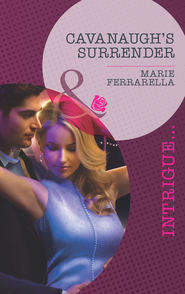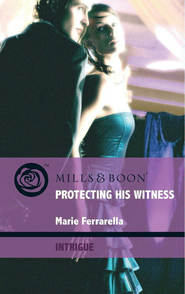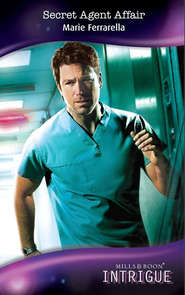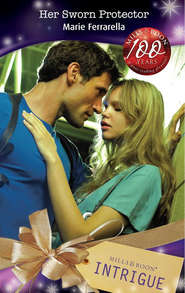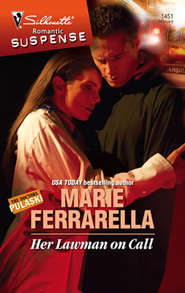По всем вопросам обращайтесь на: info@litportal.ru
(©) 2003-2024.
✖
Her Mistletoe Cowboy
Автор
Год написания книги
2019
Настройки чтения
Размер шрифта
Высота строк
Поля
“She might have gotten lost,” the man, a Stan Saunders, had told him. “I told her to get a car with a GPS, but even if she did, it’s still possible that she’s gotten lost. I called the airport rental agency and they said she rented a tan compact Toyota,” he’d added as an afterthought.
The editor had started to recite the license plate to him, but he’d stopped the man, saying it was enough that he had a description of the car. There weren’t exactly an abundance of compact Toyotas of any color in this part of Texas.
“People tend to drive Jeeps and trucks out here,” he’d told the man. “But to be on the safe side, maybe you could describe your writer to me.”
Saunders had immediately rattled off the pertinent details as if he was staring at a picture of the writer. “Kim’s five-two, twenty-eight years old, has really dark brown eyes, blue-black hair, straight, chin length, oh, and she’s Eurasian, if that helps any,” he said as if he’d just remembered the last detail.
“I’ll find her,” he’d promised the man, more than a little intrigued now by the mental picture he’d formed from Saunders’s description.
Before he left, he’d stopped to tell Jackson where he was going because this was the morning he was supposed to be overseeing some of the recent arrivals’ progress. Now, because of the missing writer, Jackson was going to have to double up and take his boys, as well as his own.
Not that his brother minded extra work when it came to the teens on the ranch. That was, after all, the entire point of the ranch’s existence. But he could see that Jackson minded the reason for his being unavailable for a while.
Ordinarily easygoing and unflappable, Jackson had frowned at the prospect of his going out to hunt for the supposedly missing writer.
“If you hadn’t said yes to the story in the first place,” Jackson had pointed out, “you wouldn’t have to go running around, trying to track down the whereabouts of some displaced big-city tenderfoot who could just have gotten herself really lost out there.”
“It’ll all be worth it in the end,” he’d promised Jackson just before he’d gone off.
Of course, he hadn’t been all that sure about it at the moment.
And he still wasn’t any surer about finding her now. Granted that looking for a tan compact foreign car was somewhat better than looking for a needle in the haystack—but not by much. There was a lot of terrain to cover between Forever and Laredo, and if this woman was really as bad at following directions as that editor had said she was, he just might have to enlist Sheriff Santiago and his deputies to help him find her.
What kind of a Navajo brave are you?
He could almost hear his uncle growling the question at him in that hoarse, gravelly voice of his.
Unlike a great many residents in and around the reservation that was located ten miles outside of Forever, Sam White Eagle had been very proud of his heritage. Proud to be both a Navajo and an American, and it was because of Sam that both he and Jackson had their feelings of self-worth and their self-esteem intact.
It hadn’t always been that way, at least not for Jackson, who was only half Navajo. The mother who had deserted him had been Caucasian and from what his own mother had told him about the other woman, she had made Jackson feel that his Native American side was what dragged him down.
Jackson had had a lot going against him and to his credit—and Sam’s—he had come a long way, Garrett thought. That was part of what he wanted this writer’s article to reflect. That Jackson had been the first youthful offender who had been turned around by what he’d learned at the Healing Ranch—even if the ranch hadn’t been called that at the time. Back then it had just been a working ranch—and he and Jackson had been the ones doing the working—right alongside their uncle.
These days it was still a working ranch, but its purpose now was a little different from the one it had when Jackson was brought in to work there as a troubled teen.
Damn, how could this woman have gotten lost? Garrett wondered, slowly urging his horse on. The road was fairly straight from Laredo to here. All she had to do was stay on it.
There were no storms anywhere in that stretch of land to divert her, not even one brewing on the horizon, according to the latest weather report, so where the hell was she?
Garrett squinted as he stared out along the road below. Even from here, he should be able to see the dust the car was kicking up.
Okay, so the car was tan and that didn’t exactly stand out immediately in this area. If she’d rented a car that was a royal blue, the color that was still pretty popular in the glossy magazine ads he looked at on occasion, she would be easier to spot. But even in a tan car, he felt he could still find her. It was just harder.
But harder didn’t mean impossible. It just meant that—
Garrett abruptly stopped giving himself a pep talk and really stared down at the road below him. There was something pulled over to the side.
It was a tan compact car.
Her car, he thought triumphantly. He’d found her, Garrett congratulated himself.
There was no cloud of dust, big or little, coming from around it. Now that he had finally spotted it, he saw that the vehicle wasn’t moving.
Why wasn’t it moving? he wondered in the next heartbeat. Had she run out of gas, or had the car just died?
And then an even worse thought suddenly occurred to Garrett.
Had the woman passed out for some reason?
With women like his late mother, Sylvia, Miss Joan, the tart-tongued woman with the heart of gold who owned the diner, and now Debi, the nurse who had married his brother, populating his life, he was accustomed to thinking of women as inherently strong. He was used to women like Debi who rolled up her sleeves, went out and got the job done, not women who fainted at the first sign of trouble.
From what he’d managed to gather from the editor he’d talked to, this woman from the magazine might very well fall into the latter group, not the former.
If that was the case, whether she was spooked or had fainted, he had better get down there to her pronto. There was no telling what sort of condition this woman was in—and how that might, ultimately, reflect on the Healing Ranch.
He knew that was a selfish thought, but when it came to Jackson, he could be as selfish as he had to be.
The fastest way from where he was to where she was down below was straight down the hillside. It was the fastest way, but definitely not the easiest.
“You up to this, boy?” he asked, patting his golden palomino’s neck.
There was no question that the stallion he had raised from a foal was sure-footed, but he had never actually put Wicked to the test, at least not for more than a couple of feet.
Garrett looked down, undecided. It was a lot more than a couple of feet between where he was and where the woman’s car was.
“This is going to be tricky,” he said.
The words were intended for him rather than for the horse he regarded as more than just an animal. Wicked and he had a strong bond, and the horse would push himself to the limit for him. That was just the way things were.
At the same time, he didn’t want to do anything that just might cause the stallion to injure himself.
“You’ve got to go nice and slow, a little bit at a time.” He spoke in a steady, firm cadence, encouraging the horse. “But you can do it.”
Garrett was completely aware that once they started, there was no turning back, no do-overs. They could only continue on the path they were on. But he felt he had no choice, he had to try it. The woman might be hurt, which was probably why she was pulled over like that and if she was hurt, then time was important and going the other roundabout route would take him at least three times as long.
Mentally crossing his fingers and all but holding his breath, Garrett gave Wicked the command to start down the side of the hill. The horse obeyed.
He held on to the reins as tightly as he dared, not wanting to pull the horse back too much because he was afraid that it might cause Wicked to either grow skittish or actually rear back, neither of which would end well for them.
What ultimately resulted was something that, to the casual observer, looked as if the horse was sliding down the hillside in slow motion, his front hooves going first, sending bits and pieces of dirt and a little grass raining down ahead of him. The same, a little less forcefully, was happening with the back hooves.
Progress was slow and careful, but after what felt like an eternity later to Garrett, he and Wicked were on flat ground at the bottom of the hill several feet away from the parked car.
The feeling of relief was almost dizzying. He couldn’t help wondering if Wicked felt the same way.
“Extra lumps of sugar for you today when we get back,” Garrett promised, leaning over slightly in the saddle in order to pat the horse’s neck. Both of them, he noticed, were sweating. He felt more connected to the palomino than ever.
“Hell, extra lumps of sugar for you for a week,” Garrett amended. “You could have sent me flying right over your head and breaking my fool neck with just one misstep,” he acknowledged with more than a little feeling. “Thanks for not doing that.” He took a breath, steadying what he realized was a ragged case of nerves. “Now let’s see what’s wrong with this tenderfoot,” he proposed to his four-footed companion.






